By: Dr. W. Scott West, Chief Medical Officer, Nashville NeuroCare Therapy
We understand that there are many barriers that keep people from getting the mental health support they need. Even as mental health awareness is increasing, the stigma, financial concerns, and not knowing where to turn all serve as obstacles to finding help. Often, the experience of depression itself, with a lack of energy and difficulty with decision-making, can also be an impediment. That’s not even to mention any systemic barriers, including lack of education, lack of familial support, and lack of accessible resources.
As stated by NAMI, “people who seek treatment must navigate a fragmented and costly system full of obstacles. As a result, many people cannot access mental health care when they need it most.” However, there is hope: as with most challenges, understanding the obstacles at hand is the first step to overcoming them. When you know what you’re up against, you’re one step closer to creating a successful plan for treatment.
Lack of Education and Awareness
Sometimes, mental health issues aren’t quite as obvious as physical injuries, even to those experiencing them. Subtle symptoms of “clinical anxiety may be dismissed as ‘worrying too much,’ depression can often look like ‘laziness’ or fatigue” (Social Solutions). It can take time and education to recognize that feeling depressed isn’t normal (even if it is common). After all, if it’s your neutral state, it takes outside information to learn that things could and can feel different.
Negative Stigma
Now, more than ever before, talking about mental health is becoming more and more common. Despite this significant progress, stigmas and biases about mental health issues persist. Whether it’s an internalized bias— “if I ask for help, does that mean I’m crazy?”— or fear about how you’d be treated by friends, family, or work can keep people from getting the help they deserve.
Financial Roadblocks
The Affordable Care Act (ACA) requires medical insurers to cover behavior and mental health care; since the implementation of the ACA, “individual and small group plans must cover mental health and substance use disorder services and prescription drugs” (NAMI). However, even with these important previsions, treatment costs still keep many people from getting adequate care. If patients require recurring therapy or medications, costs can add up quickly before one can even hit their deductible.
Finding a Doctor and Treatment Plan
Treatment isn’t one size fits all. Whether you’re trying to find a therapist that clicks with you, a medication that helps, or you are exploring other treatment options like TMS Therapy, everyone has their own journey toward healing. Unfortunately, that journey isn’t always linear, easy, or quick. With the time, energy, and money that goes into seeking help, facing progress setbacks can be extremely discouraging and prevent people from finding the relief they deserve.
At Nashville NeuroCare Therapy, we specialize in treating depression with TMS Therapy, or transcranial magnetic stimulation therapy. In depressed brains, centers that regulate mood and behavior are often underactive. Using gentle magnetic stimulation, we activate these underdeveloped centers in the brain. The stimulation from the magnet encourages the brain to build and strengthen neural pathways that were previously underactive so your brain can start regulating your mood and behavior all on its own, without the aid of medication. This offers long-lasting, self-sustaining relief without any nasty side effects commonly associated with antidepressant medications. TMS Therapy is the APA’s suggestion if medication hasn’t been offering you relief from your depression.
Nashville NeuroCare Therapy accepts a range of insurance carriers and offers flexible payment options to help everybody find the help they need. In-network providers accepted at our office include:
- Aetna
- Anthem BlueCross BlueShield
- BlueCross BlueShield of Tennessee
- Beacon Health Options
- Medicare
- TRICARE
- United Healthcare
If you aren’t covered by one of the above insurance carriers, that’s ok— there are other ways to find financial support and receive treatment at Nashville NeuroCare.
Out-of-Network Reimbursement
At Nashville NeuroCare, we use NeuroStar® TMS technology. Fortunately, even if your insurance is not listed above, over 300 million patients have insurance policies that cover NeuroStar treatment, and costs could be recoverable using out-of-network benefits. For more information on insurance companies that cover NeuroStar TMS Therapy, please visit NeuroStar’s health insurance coverage webpage.
Alternative Financing
If your insurance is not covered at our office, the costs of therapy could be recoverable in other ways, including private insurers, flexible spending accounts (FSAs), and patient financing loans.
Advance Care Card
If your insurance carrier isn’t listed above, one of the quickest, easiest ways to cover the cost of treatment is to use the Advance Care Card. This card accepts a wide range of credit and is interest-free for up to 14 months. Learn more and apply here.
If you’re unsure of the best way to pay for your TMS Therapy, we have experienced insurance consultants who will work with you and your health insurance company to determine your benefits, coverage, and out-of-pocket costs. During your Free TMS Therapy Screening, we will discuss all of this as well. We know insurance can be confusing and stressful. We are here to help you simplify the process so you can take this next important step towards your wellness.
Request a consult today.


